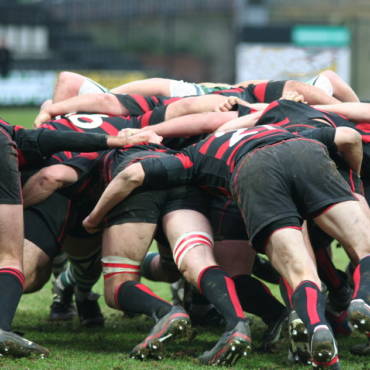Sporting Parents – the same the world over.
I get asked to talk to groups of sporting parents all over the world and over the past 20 years, I must’ve spoken to hundreds of groups.
There isn’t anywhere in the world I can think of where I haven’t spoken to groups of sporting parents – (sporting parents meaning the parents of kids who play sport).
And I’ve talked to parents of kids who play sport – sporting parents – in Russia, in Spain, in Portugal, in Greece, in many locations around the United States, numerous locations around Australia, in England, in Scotland, in Wales, Zimbabwe, South Africa, New Zealand, Indonesia, the Philippinnes – you name it, I’ve been there speaking to groups of sporting parents.
And the remarkable thing is: The questions they ask and the information they seek is almost universal. I get asked the same questions in Texas that I get asked in Turkey. I get asked the same questions in South Africa that I do in Saipan. Sporting parents are the same everywhere.
A plea to the Sporting Parents of the World.
This is a plea to sporting parents all over the world to really understand the role that they have in being an effective sporting parent and helping to provide their child with the environment and the opportunity to be all they can be.
The Performance Partnership.
In the old days we used to talk about the athlete, the coach, and the parent as three completely separate entities and even though they were all intent on helping the child achieve their full potential in sport, they worked very separately.
What we talk about now is the performance partnership where each of the “partners” has got a job to do.
The coach’s job is to prepare the athlete physically: to help them with the development of sporting skills, to help them with their technique, their tactics and their strategies, to teach them about recovery, to help them develop as athletes – all that is the coach’s responsibility.
The athlete has two or three very clear, very simple and very obvious responsibilities within the performance partnership: to perform everything they’re asked to perform with the full extent of their potential, to out-prepare their competition in every aspect on and off the field and to give all they can physically, mentally and emotionally to being all they can be.
The sporting parent has some incredibly important responsibilities within that performance partnership of coach, athlete, parent.
A sporting parent, for example, is responsible for helping their child to develop values like honesty, integrity, humility, courage, discipline. A sporting parent can help a child develop time management skills. A sporting parent can teach an athlete to be more responsible for their own behaviour.
Teaching Personal Responsibility – A Real Life Example.
Think about your own child for a moment.
How many times a day does your child press the buttons on a computer, on a smartphone or an iPad?
It’s very, very simple to teach them to press one button on a dishwasher or one button on a washing machine and teach them to take some responsibility for their own behaviour.
A sporting parent can teach kids things like getting enough sleep, about adequate nutrition and a sporting parent can help them with schoolwork. And most importantly, a sporting parent can provide the one thing that no one else can provide in their child’s life: unconditional love and support.
And where I see sporting parents break down in their relationship with athletes and coaches is where they cross the boundary, e.g. where sporting parents start to tell an athlete how to prepare or tell a coach how to do their job – once those boundaries get crossed and where the parent is living vicariously through the athlete or trying to coach the athlete, everything breaks down.
Parents….Help Your Child to Realise their full Sporting Potential.
This is again a plea to sporting parents all over the world: Be a great sporting parent, love your child unconditionally, give them all the love, care and support that you can and do your job as a sporting parent really well.
Teach them honesty, teach them integrity, teach them humility, teach them sincerity, help them with their work ethic, teach them time management – teach them all the things that only you can teach.
And if you do your job really well as a sporting parent, and the athlete does their job (i.e. that they try to do their best everyday and in everything they do) as an athlete, and the coach does their job, the three of you together are capable of doing amazing things.
Wayne Goldsmith



